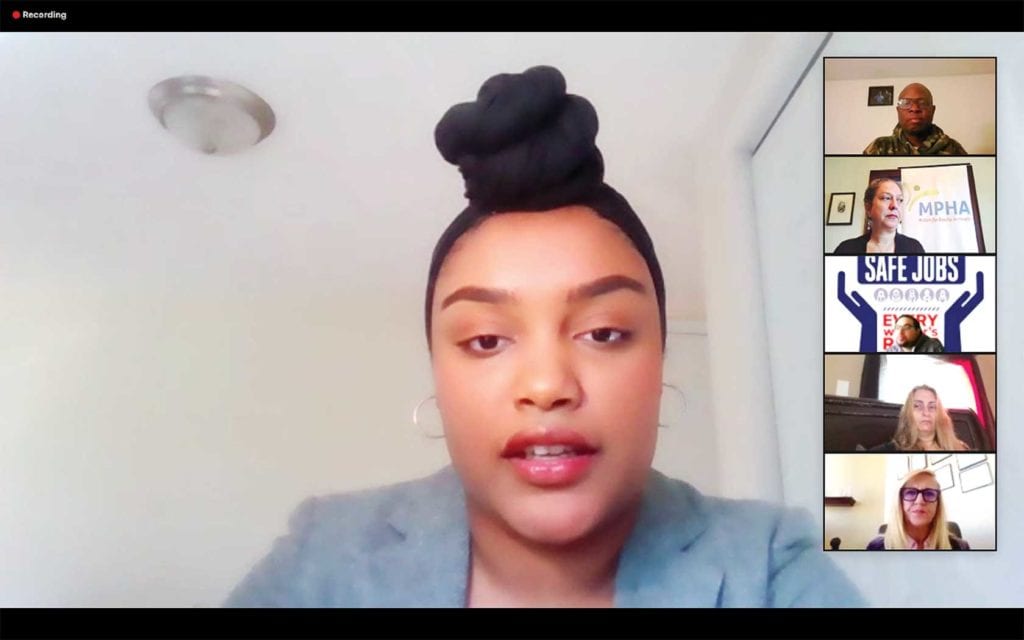
Care workers in Massachusetts are contracting COVID-19 in their workplaces, but in the volatile job climate, many have no other employment options and no sick days left. During budget negotiations at the State House, legislators debated putting the Emergency Paid Sick Time Amendment in the FY2021 state budget.
The House did not approve the amendment in its version of the budget, so Raise Up Massachusetts is now urging state senators to pass the amendment in the Senate version, allocating $55 million to a sick time fund. The money goes toward 10 additional work days (80 hours) of paid sick time for immediate use, and would reimburse employers who participate, whether their employees work on the front lines of the pandemic or not.
The fund would allow workers who weren’t protected by the federal Families First Coronavirus Response Act. Workers who were employed by companies of more than 500 workers were ineligible, leaving out about 1.8 million workers in Massachusetts, according to The Center for American Progress.
Care workers met via Zoom Nov. 16 to express their support for the Emergency Paid Sick Time Amendment.
Noel Lozada, assistant manager at a group home in Lynn, has been sick with COVID-19 since Nov. 6.
“I’m fortunate enough that I had not taken any time off during this entire first round,” she said. “But I don’t think I’m going to have enough time, simply because this virus is more than what people think it is.”
She and other workers on the call expressed that the lack of care for care workers is exactly what spreads the virus. Sick workers can’t afford to stay home and so risk spreading COVID-19 to their patients and clients.
“My whole department got wiped out with COVID back in June,” said Wanda Rivera, lead scheduler at Steward Holy Family Hospital. “I have a child that’s doing remote learning. I also had to take time off for that in September, trying to figure out how to help him get his education and me, as a mom, work full time as well,” Rivera said. She reduced her weekly hours from 50 to 20 so that she could spend more time on her child’s remote learning, she said.
Organizers at Raise Up Massachusetts were able to garner 115 House representatives to co-sponsor the budget amendment, and though it did not pass, they now have 11 supporters in the Senate and are hoping that number grows. They attribute some of the lack of support for workers to Governor Charlie Baker’s comments on how the virus is spread. Last week he was quoted saying the biggest challenge is unregulated environments like social gatherings, not workplaces.
Tracking outbreaks in the workplace is not a straightforward process. Carlene Pavlos, executive director of the Massachusetts Public Health Association, said that linking cases to a cluster takes better contact tracing.
“The truth of the matter is that we do not have really adequate contact tracing in this state to identify the sources of most of the COVID outbreaks. But even in the limited data that we have, a lot of these are connected to work sites,” Pavlos said.
Al Vega, director of policy and programs at the Massachusetts Coalition for Occupational Safety and Health, added that many employers don’t have the resources to report data on outbreaks as they happen in their workplaces.
Raise Up Massachusetts will be continuing to advocate for the amendment as budget deliberations go on at the State House, through phone banking and email banking with its network of over 100 faith organizations and labor unions across the state.






